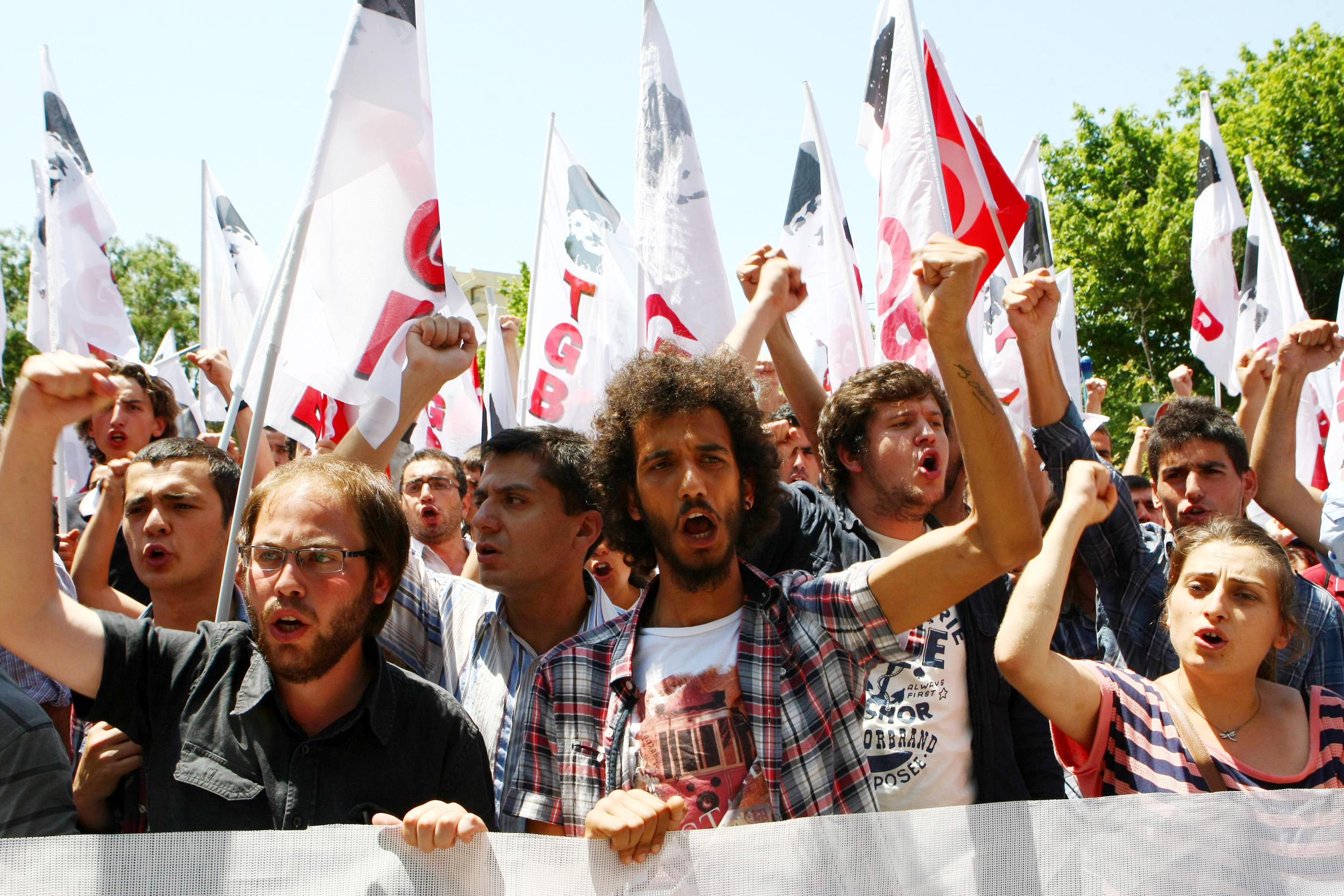
Turkish students stage a protest against the government and condemning the detentions of students at the universities in Ankara on June 16, 2012. (ADEM ALTAN/AFP/GettyImages)
In Turkey, it is not “publish or perish” that scholars must fear. It is prison.
There was a time, not very long ago, that Turkey seemed on the edge of a new era of academic and intellectual freedom. New private universities created institutional support for more independent scholarship, while the Turkish government showed at least grudging willingness to allow debate of formerly “taboo subjects.” For example, in 2005, the ruling AK (Justice and Development Party) Party, after initial hesitation, publicly supported the first conference in Turkey that seriously examined the Armenian Genocide. It soon became apparent, however, that the AK Party’s vision of academic freedom has clear limits.
Asserting Control over the Universities
In some cases, basic science came under attack. In Turkey, as in the United States, there is a powerful creationist movement eager to debunk fundamental aspects of evolutionary science. Creationism has deep roots in Turkey and the ruling AK Party has quietly picked up the banner of anti-science. Slowly, over the past several years, major scholarly institutions have lost their independence and party hacks have replaced serious researchers.